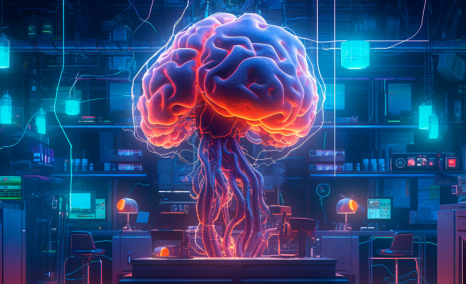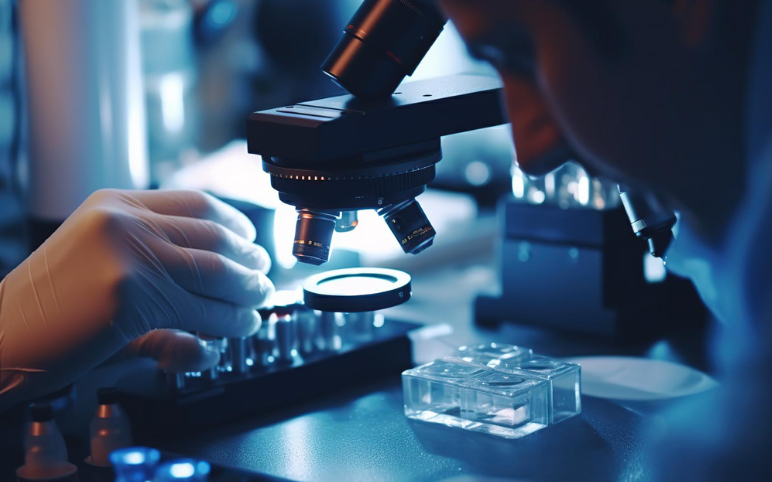The Rise of Sleep Tech Devices: Unlocking Better Sleep
Jun 06, 2025
Table of Contents
In today’s fast-paced world, achieving quality rest can be challenging—this is where sleep tech devices are making a difference. Leveraging innovative sleep trackers for detailed insights and smart tech for better sleep, the latest sleep technology products help users monitor and enhance their sleep patterns. From eco-friendly sleep tracker advanced technology to luxury advanced sleep tracker features designed for high-end homes, sleep tech is evolving rapidly. As the sleep tech devices market grows, consumers are turning to technologies that support healthy sleep and sleep improvement devices to optimize rest and well-being.
Understanding Sleep Tech Devices
Sleep tech devices involve delving into innovative sleep technology products designed to monitor, analyze, and improve sleep quality. From wearable trackers to bedside monitors, these sleep tech devices utilize advanced sensors and algorithms to collect data on sleep patterns, including duration, quality, and disturbances. By providing users with innovative sleep trackers for detailed insights, these devices empower individuals to make informed decisions about their lifestyle and sleep hygiene. Moreover, with features like smart alarms, personalized recommendations, and smart tech for better sleep, sleep improvement devices offer practical solutions for addressing sleep-related issues and optimizing overall well-being.
Downloads
Click Here To Get the Article in PDF
Recent Articles
- Covering the Therapeutic Advancements in Obstructive Sleep Apnea Treatment Scenario
- How is Technology Addressing the Sleeping Disorders?
- Laborie Medical Acquired Urotronic; Sirtex’s LAVA Liquid Embolic System; Paige’s Cancer Detection...
- Sleep Disorders: An Emerging Public Health Issue
- Plotting the Extensive Demand of Mobile Apps for Mental Health
Beyond mere data collection, the efficacy of sleep technologies lies in their ability to translate information into actionable insights. By interpreting sleep data and identifying patterns, these devices facilitate personalized sleep optimization strategies tailored to individual needs. Whether it’s adjusting bedtime routines, modifying environmental factors, or implementing relaxation techniques, users can leverage these insights to cultivate healthy sleep habits and achieve restorative rest. As the field of sleep technology continues to evolve, the integration of advanced analytics and artificial intelligence promises even greater precision and effectiveness in enhancing sleep quality, driving significant growth across the sleep tech devices market, and delivering next-generation technology for better sleep.
Wearable Sleep Trackers
Wearable sleep tech devices have revolutionized how individuals monitor and understand their sleep patterns. These sleek tools, often worn on the wrist like a watch or integrated into a smartwatch, employ advanced sensors to gather data on various aspects of sleep, including duration, quality, and stages. Leveraging innovative sleep trackers for detailed insights, these devices can track metrics such as heart rate, movement, and even ambient light levels. As sleep technology products evolve, wearable trackers now provide users with actionable feedback on their sleep habits, empowering them to make informed decisions and adopt technologies that support healthy sleep.
Moreover, wearable sleep improvement devices offer unmatched convenience and accessibility, seamlessly integrating into users’ daily routines. Through accompanying mobile apps, they deliver smart tech for better sleep by generating detailed reports and personalized insights. Whether it’s adjusting bedtime routines, optimizing the sleep environment, or identifying patterns that disrupt restful sleep, these sleeping tech solutions serve as invaluable tools in the pursuit of more rejuvenating rest. As the sleep tech devices market continues to grow, wearable trackers are emerging as some of the best sleep tech innovations, driving better health outcomes.
Smart Mattresses and Sleep Monitors
Another emerging trend in sleep tech is the development of smart sleep technology through smart mattresses and sleep monitors. These sleep technology products integrate advanced sensors and AI algorithms to monitor various aspects of sleep, such as body movement, heart rate, and breathing patterns, providing an innovative sleep tracker for detailed insights into users’ sleep cycles and habits. By analyzing this data, smart mattresses and sleep monitors offer personalized recommendations to improve sleep technology outcomes, such as adjusting sleeping positions or optimizing environmental conditions like room temperature and lighting. Many models also feature smart alarms that wake users during their lightest sleep stage, delivering a more refreshed awakening and an overall better sleep experience.
Beyond sleep monitoring, today’s best sleep tech in smart mattresses includes built-in technologies aimed at enhancing comfort and relaxation. Features such as adjustable firmness, temperature regulation, and built-in massage capabilities contribute to a more restorative night’s sleep. Seamlessly combining these innovations with sleeping technology and monitoring functionality, smart mattresses offer a comprehensive solution to optimize both sleep quality and comfort. Additionally, many devices sync with smartphone apps and smart home systems, showcasing the ongoing evolution of the sleep tech devices market, empowering users to track progress and fine-tune their routines using the latest technology for better sleep.
The Benefits of Sleep Tech Devices
Sleep tech devices have revolutionized the way we understand and approach our nightly rest. Here are the most important benefits of sleep tech devices:
Improved Sleep Quality: Sleep tech devices, such as smart mattresses, sleep trackers, and white noise machines, provide insights into your sleep patterns, helping you understand the quality of your rest. By monitoring factors like sleep duration, interruptions, and stages of sleep, these devices offer personalized recommendations to enhance sleep quality.
Enhanced Sleep Awareness: With sleep tech devices, individuals gain a deeper understanding of their sleep habits and behaviors. By tracking metrics like sleep duration, REM cycles, and heart rate variability, users become more aware of their sleep patterns and can make informed decisions to optimize their rest.
Personalized Sleep Solutions: Sleep tech devices offer personalized recommendations based on individual sleep data. Whether it’s adjusting bedtime routines, optimizing sleep environments, or identifying potential sleep disorders, these devices provide tailored solutions to improve sleep quality and overall well-being.

Promotion of Healthy Habits: Many sleep tech devices incorporate features that encourage the development of healthy sleep habits. From guided meditation and relaxation techniques to smart alarms that wake you during light sleep stages, these devices promote consistency and establish routines conducive to better sleep.
Management of Sleep Disorders: Sleep tech devices play a crucial role in managing sleep disorders such as insomnia, sleep apnea, and restless leg syndrome. By monitoring sleep patterns and detecting abnormalities, these devices help individuals identify potential issues early on, facilitating timely intervention and treatment.
Overall Health and Well-being: Quality sleep is essential for overall health and well-being, impacting cognitive function, mood regulation, immune function, and more. Sleep tech devices contribute to better health outcomes by empowering users to prioritize sleep, identify areas for improvement, and implement strategies to optimize restorative rest.
Sleep Tech Devices Market Dynamics
The sleep tech devices market is experiencing a surge in demand driven by an increasingly health-conscious population and growing awareness of the importance of quality sleep. With the rise in sleep disorders such as insomnia and sleep apnea, consumers are turning to technology to track and improve their sleep patterns. This has led to innovations in sleep tracking devices, smart mattresses, sleep monitoring apps, and wearable gadgets that analyze sleep data to provide personalized insights and recommendations for better sleep hygiene.
As per the latest assessment by DelveInsight, the global sleep tech devices market was valued at ~USD 17 billion in 2023, growing at a CAGR of 17.31% during the forecast period from 2024 to 2030 to reach ~USD 44 billion by 2030.
Moreover, the integration of advanced technologies such as artificial intelligence and machine learning is revolutionizing the sleep tech industry, enabling more accurate sleep tracking and customized solutions. Companies also focus on developing non-intrusive and user-friendly devices to cater to a wider consumer base. The market is witnessing intense competition, prompting manufacturers to continuously innovate and improve their offerings to stay ahead in this rapidly evolving landscape. As sleep technology becomes more sophisticated and accessible, it is expected to enhance the quality of sleep for individuals and contribute significantly to the overall wellness industry.
Sleep Tech Devices Market Key Players
The burgeoning sleep tech devices market boasts a diverse array of key players, each contributing innovative solutions to improve sleep quality and overall well-being. At the forefront of this sector are established giants like Koninklijke Philips N.V, Huawei Device Co Ltd., ResMed, Xiaomi, Apple Inc., Emfit Corp., Masimo, Garmin Ltd., Compumedics Limited, NIHON KOHDEN CORPORATION, Cadwell Industries Inc., Eight Sleep, Oura Health Oy, Sleep Shepherd LLC, Sleepace, Apollo Neuroscience Inc., Braebon Medical Corporation, Belun Technology, Nyxoah, Somnology, Inc., and others, renowned for their advanced sleep apnea treatment devices and comprehensive sleep tracking solutions.

Moreover, emerging players like Dreem and Oura are making significant strides with their innovative sleep wearables, challenging the market incumbents. Dreem’s EEG-based headband employs neurotechnology to track brain activity during sleep, offering actionable insights for optimizing sleep quality. On the other hand, Oura’s sleek ring design incorporates advanced sensors to monitor various sleep metrics, providing users with holistic sleep data analysis. These newcomers are reshaping the sleep tech landscape with their focus on user-centric design and data-driven approaches, driving competition and innovation in the market.
Furthermore, tech giants such as Apple and Google are increasingly investing in sleep-related features within their ecosystems, signaling the growing importance of sleep health in the consumer technology sector. Apple’s integration of sleep tracking into its watchOS and Google’s advancements in sleep analysis through its Fitbit acquisition underscore the immense potential of sleep tech in mainstream consumer electronics. With a blend of established players, disruptive startups, and tech behemoths vying for market dominance, the sleep tech devices market is poised for continued expansion and technological advancement, ultimately empowering consumers to achieve better sleep and overall well-being.
Sleep Tech Devices: Challenges and Considerations
The proliferation of sleep tech devices promises to revolutionize how we understand and optimize our sleep patterns. However, amid this surge in sleep technology innovation, several challenges and considerations arise. One significant challenge is ensuring the accuracy and reliability of these sleep improvement devices. While many boast advanced features like sleep tracking and analysis, their effectiveness can vary widely, leading to discrepancies in data interpretation. Precision is crucial, as inaccurate readings may misinform users about their sleep quality, potentially exacerbating rather than alleviating sleep-related issues.
Additionally, privacy and data security pose substantial concerns within the sleep tech devices market. These devices often collect intimate data about users’ sleep habits and health metrics, making robust encryption protocols and transparent data handling essential to protect sensitive information. Striking a balance between delivering personalized insights through smart sleep technology and safeguarding user privacy is paramount. Addressing potential biases in algorithmic analyses is also critical to ensure inclusivity and equity across diverse demographics. As the sleep technology products landscape continues to evolve, overcoming these challenges will be instrumental in unlocking the full promise of technology for better sleep and enhancing overall well-being.
Looking to the Future of Sleep Tech Devices
As we peer into the future of sleep tech devices, it’s clear that innovation and necessity will continue to drive advancements in how we optimize our nightly rest. From smart mattresses that adapt to our bodies’ needs to wearable sleep trackers that monitor and personalize sleep patterns, the focus is increasingly on tailored solutions. The future promises devices that not only track sleep but also actively intervene to improve it, whether through gentle vibrations to prevent snoring or ambient soundscapes that promote relaxation.
Furthermore, as awareness of sleep’s critical role in overall health grows, sleep technology products are expected to integrate seamlessly into holistic wellness ecosystems. Imagine sleep tech syncing with fitness trackers to adjust bedtime routines based on daily activity or collaborating with mental health apps to address stressors impacting sleep quality. As sleeping technology evolves, so will our ability to harness the full benefits of restful sleep for enhanced physical, cognitive, and emotional well-being.

Downloads
Article in PDF
Recent Articles
- Plotting the Extensive Demand of Mobile Apps for Mental Health
- Covering the Therapeutic Advancements in Obstructive Sleep Apnea Treatment Scenario
- Sleep Disorders: An Emerging Public Health Issue
- Zepp Health Launched OTC Hearing Aids; Neoss Launched NeoScan 2000; FDA Clearance for AI-Assisted...
- How Is Digital Therapeutics Reshaping the Future of Healthcare?



